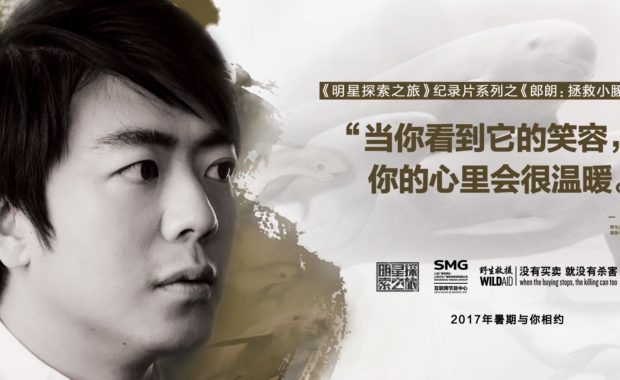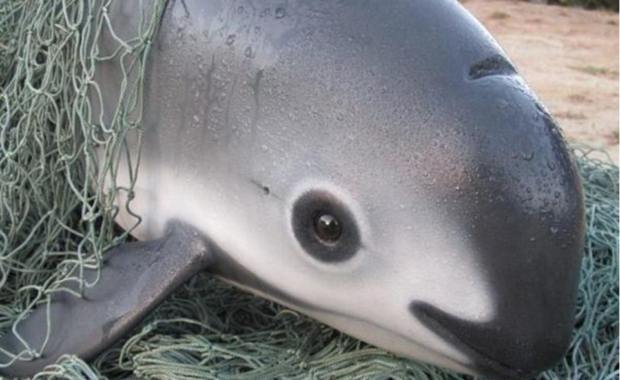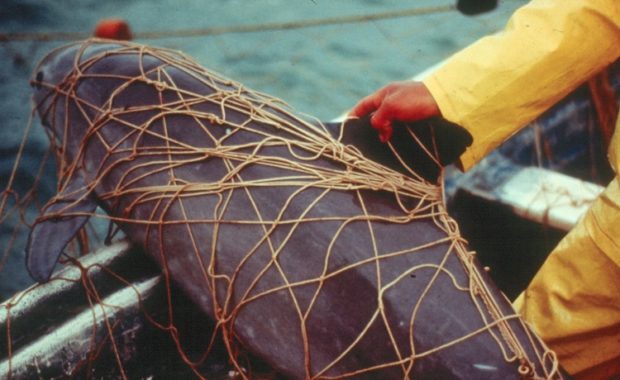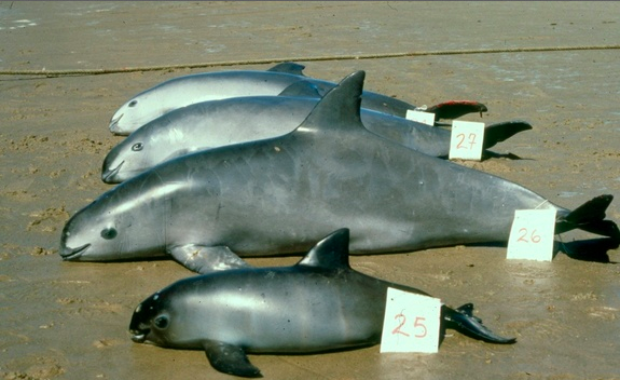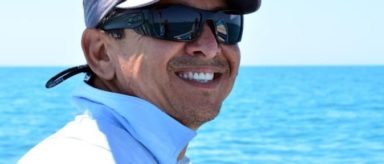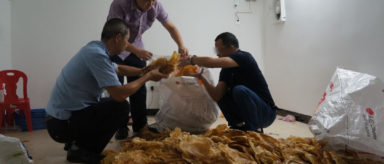Fewer than 30 vaquita porpoises remain as the species nears extinction
The vaquita porpoise is the world’s smallest cetacean and is only found in the upper Gulf of California, Mexico. Despite conservation efforts by the Mexican government and conservation organizations, the vaquita population has fallen by 90% in the last five years to fewer than 30. The decline is largely a result of the animals drowning in illegal gillnets set to catch the critically endangered totoaba fish. The totoaba’s swim bladder is prized in Mainland China and Hong Kong SAR for its purported medicinal properties including boosting fertility and improving the skin.
- -90%
Vaquitas have suffered a 90% decline in the last 5 years. - 30
Fewer than 30 vaquitas are believed to remain. - 400
WildAid helped train more than 400 law enforcement officers to detect illicit totoaba products.
Making an impact
Although international trade is banned, dried totoaba swim bladders are in high demand in China. As they sell for up to $50,000 per bladder, a resurgence in illegal fishing has occurred recently in the Gulf of California, the only habitat of the vaquita. While vaquitas are not targeted by fishermen, they are being driven to extinction due to bycatch from the illegal totoaba trade. WildAid is working to educate Chinese officials, traders and consumers about the illegality of the totoaba bladder trade, to strengthen enforcement efforts in Mainland China and Hong Kong SAR, and to facilitate cooperation between officials in Mexico, the U.S. and China.
With the Guangdong Fisheries Bureau and Fuzhou Customs, we supported training for more than 400 enforcement officers. An additional multi-national law enforcement training workshop was held in Guangzhou for China’s coast guard, customs and fisheries agencies, and local market inspectors.
Further, we have produced, distributed and displayed brochures, flyers and posters highlighting the illegality of the totoaba swim bladder trade in key marketplaces and produced informational videos and a TV documentary to educate the Chinese public about the crisis. With NRDC, we also produced a mobile pocket ID guide to aid enforcement officials in recognizing illegal products in the field.
